Posted in Learning Edge
September 26, 2013
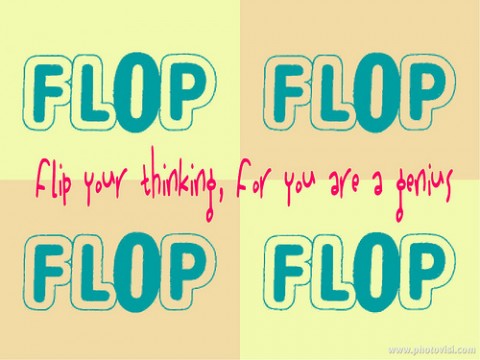
|Photo by Denise Krebs|http://www.flickr.com/photos/56041749@N02/6505676869/in/photolist-aUTi5z-b8fQp6-8vP3az-8vS5Gw-8vP6yc-df3uDo-9ajyDy-9ajyGj-9uwZsS-8xEyPM-a9Sswa-838T1L-838T29-838T2o-7EEiRH-9K1FZL-dPJmcY-9z759H-9qnBXs-aoqz7f-aonL2P-aonJXi-aonNiT-aoqwaS-aonMhc-aonLrp-aonMWr-aonKPK-eRPkFi-7HdeeN-8LifKY-7SSJvk-8giPCy-7HzRRr-7HzRXp-7HDMMm-7HDMRs-7HzRZH-7HzRVB-8TVkao-8brUvi-7AvmtM-7Az7Xm-7AvmvZ-8SNtK4-aoqvKQ-aonMJz-aoqy3L-aonLRP-aoqxBW-aoqvXy|
During his presentation at this week’s Council of Foundations Conference for Community Foundations, the Monitor Institute’s Gabriel Kasper talked about the need for innovation in community philanthropy. This included a call to examine orthodoxy in our organizations and communities, that is, the behaviors and procedures that we often take for granted with respect to the way we go about our business. This notion of orthodoxy was developed by the innovation firm Doblin and is further outlined in an article in Rotman Magazine. Gabriel then encouraged attendees to, essentially, “steal like an artist.” So in that spirit, I wanted to share the plenary exercise he had participants go through that I am particularly interested in bringing to some of the networks with which I work: Read More
May 24, 2013
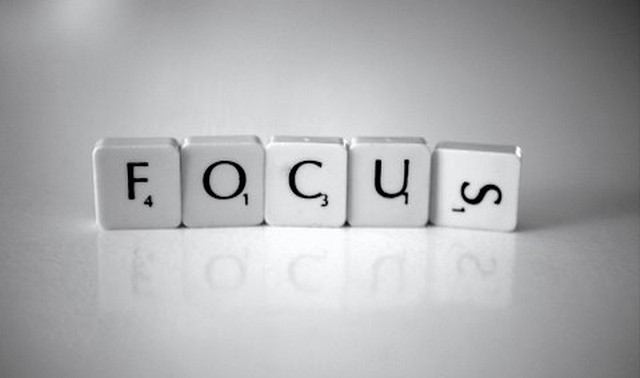
How often do you hear people saying they wish they were better at multitasking? And what percentage of the people surrounding you on the subway or on the sidewalk or waiting in line for something are peering into their smartphones? Read More
May 16, 2013
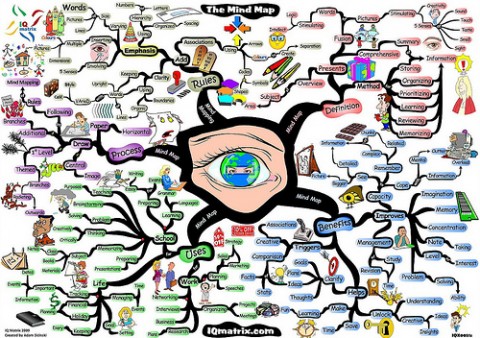
|Image by Pietro Zanarini|http://www.flickr.com/photos/zipckr/4688416205|
The following is a segment of a blog post from Pamela Mang that appeared on edge::regenerate. Pamela references the newest book from Daniel Pink, To Sell is Human: The Surprising Truth About Moving Others. In particular she highlights a section on the Pixar formula for storytelling, and how this can help us to frame our change work in engaging ways. I have also found it very helpful for getting people to open their minds to complex initiatives and imagine what it would take to really shift things. This can often be a humbling experience, in positive ways, and can lift up the importance of reaching out to others, taking a holistic approach, and speaking to both hearts and minds . . . Read More
April 4, 2013
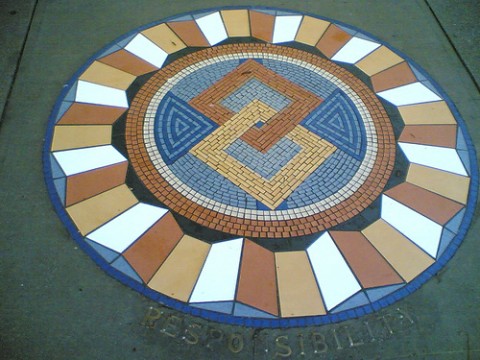
|Photo by Roland Tanglao|http://www.flickr.com/photos/roland/76395670/in/photostream|
Some very compelling points are made by Carol Sanford stemming from her work with “responsible businesses” about the importance of how people understand accountability. She cites pscyhological research that suggests that having a sense of personal responsibility for outcomes (or an “internal locus of control”), whether those outcomes are good or bad, equates with higher degrees of happiness, health, and creativity. The converse occurs when people attribute success and failure to outside forces. “Only when people are accountable for their own decisions can they develop the rigor and discipline called for in high-quality decision making,” Sanford writes. Read More
February 20, 2013
“The trickster is anybody who’s a bit of an outsider. They’re the ones who make change. They’re not thinking about making change; they’re almost doing it in a selfish way. But because they’re working outside the rules, they change the rules. Everything around them is always new, everything is an opportunity.”
– Angela Cheng
Over the long weekend, my wife and I spent some time looking through the archives of old TED talks and stumbled upon a great one from humorist-philosopher Emily Levine where she talks about the important role of the trickster in facilitating change. Read More
February 1, 2013
“You want to be engaging with people whose mind is alive, whose consciousness is alive, and who are seeking to create something.” – Carol Sanford
Carol Sanford – Generations learning from other Generations from Choosing 2Lead on Vimeo.
My colleagues and I find ourselves in many rooms with change agents of different generations. Occasionally we will see conflict arise around differing styles and approaches. Older generations may lean heavily on the notion that “this is the way we’ve always done it” or that new means and methods (social media, for example) are just a passing trend. Younger generations may look at their elders as out of touch with the times, lacking in a new analysis, etc. Thus, even when a common goal is held, an attitudinal gap can result in an unwillingness to work with and learn from one another. Read More
January 17, 2013

The following post was written by IISC friend Beth Tener, principal of New Directions Collaborative, with whom I’ve had the privilege of working over the past few years on a few different sustainability-related network building efforts. Beth and I share a keen interest in supporting the development of new economic structures and flows that bring resources back to communities and keep value grounded in real and sustainable ways. You can follow more of Beth’s insights on her blog.
A friend handed me a copy of Marjorie Kelly’s new book Owning Our Future: The Emerging Ownership Revolution; Journeys to a Generative Economy and said he thought it was so good that he had bought a case of them to share with colleagues and friends. By the time I was 50 pages into the book, I had a similar impulse to buy a case. Kelly was the editor of Business Ethics magazine for 20 years and now works at Tellus Institute and has spent years considering how to reform corporations and create enterprises that are socially responsible.
Read More
January 16, 2013

I was recently turned on to the work of Louise Diamond by the Plexus Institute. Diamond has been bringing insights from the dynamics of complex systems to peace building work for many years. Her efforts connect to a growing number of practitioners and thinkers who see the need to approach social change with an ecological and evolutionary mindset. In one of her papers, she extracts some of the “simple rules” that yield core practices for working in this way. Here I have adapted and adjusted some of them in application to network building for food systems change. Read More
January 3, 2013

|Photo by Libby|http://www.flickr.com/photos/libbyandnicki/6337707632|
A number of months ago, I posted something on what I called “The Dimensions of Social Space,” the gist of which was the proposal that we are called to tend to different dimensions of our social being in our change work – the autonomous/individual, the communal/collective, and the transcendant/”divine.” When I wrote that post, I was thinking of these as three interlocking circles in a ven diagram. I have since evolved my thinking to see them as systems sitting in nested fashion, going from the lesser (individual) to the greater (divinity) in terms of complexity. Much of this development owes to the field of living systems thinking and the mentoring of Carol Sanford. Read More
January 2, 2013

|Photo by Mo Riza|http://www.flickr.com/photos/moriza/96724309/|
One of the many things I love about the Interaction Institute for Social Change is that we are very much a learning organization, committed to sharing lessons from the work we are doing, as well as new ideas and concepts we discover through in-person and virtual interactions with a variety of thought leaders. This year, like any other, we benefitted from the writings of many, and I wanted to highlight five books that I found particularly valuable in 2012, and invite my colleagues to weigh in as well. Read More
December 21, 2012
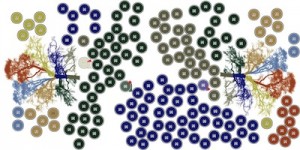
|Image by zachstern|http://www.kassblog.com/2011/07/systems-thinking|
I had a unique opportunity the other day with a client to do a little year end reflection about the path we have walked with a complex multi-stakeholder change process, which has featured a dive into systems thinking thanks to IISC friend David Peter Stroh. David was actually the one who put the question out there, “What have you gained as a result of adopting a systems thinking lens?” Here is some of what came up in terms of gleanings and appreciation:
Read More
December 20, 2012

|Photo by Joe Hardy|http://www.flickr.com/photos/flukazoid/2089475191|
“Are you a sophist?” I’ve been wrestling with that question for several weeks, at the invitation of Carol Sanford. Carol points out how many of us in the helping professions have fallen into the habit of trying to provide well-intended inspiration and advice to others at the expense of diminishing their capability. She likes to tell the story of Socrates’ awakening to what would often happen to those who listened to the Sophists preach in ancient Greece – people would leave inspired, and keep coming back for more. At a certain point, many of these “followers,” after seeing increasingly diminished returns, would become demoralized and convinced that they would never be able to reach the heights that were suggested in the speeches and sermons they heard. So Socrates took a different tack. He sought to help others grow by asking questions that helped them to move and take control of their own development. Read More









